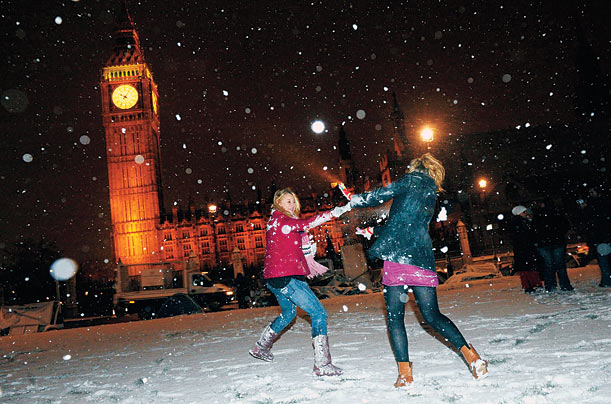
History not only gives cities their shape; it also molds their self-image. Since 1941, when London emerged from eight months of bombing with many of its landmarks pulverized but its resilience intact, the British capital has regarded itself as indomitable. But at 9 a.m. on a wintry Monday, a shock wave cracked that image, much as a V-2 rocket hitting a house would damage neighboring properties. Londoners learned that the city's entire fleet of buses had been recalled to its depots, defeated not by bombs — the service had run quixotically but without interruption throughout the Blitz — but by snow. A mere six inches (15 cm) of it.
To say Britain isn't good at coping with snow would be to exercise British understatement. Heavy snow is too rare to warrant serious investment in equipment, especially in London and the southeast, where this was, as excitable weather forecasters declared, the biggest "snow event" in 18 years. The heavy fall may cost some 3 billion pounds (about $4.3 billion), since a fifth of the workforce took a "duvet day" and businesses stayed shuttered. It also stopped Tube service, caused chaos at airports and closed schools. Thousands remained shut for 48 hours, suggesting that Londoners, even more than Washingtonians, lack the "flinty Chicago toughness" President Barack Obama missed when a cold snap in the U.S. capital suspended his daughters' school for a day.
When Chinese Premier Wen Jiabao's London visit was also disrupted by snow, Britain's international humiliation was complete. Still, say this for Londoners: They can laugh at themselves. "Good thing Hitler's dead," remarked a stock clerk in a supermarket. "He couldn't get us with the Blitz, but the place is so incapacitated now, he'd walk right in." Meeting adversity with a sort of gloomy wit is not a characteristic that always serves Brits well; they sometimes crack jokes when they should be complaining. Yet in this coldest of economic climates, an unquenchable sense of humor is one commodity that won't lose its value.